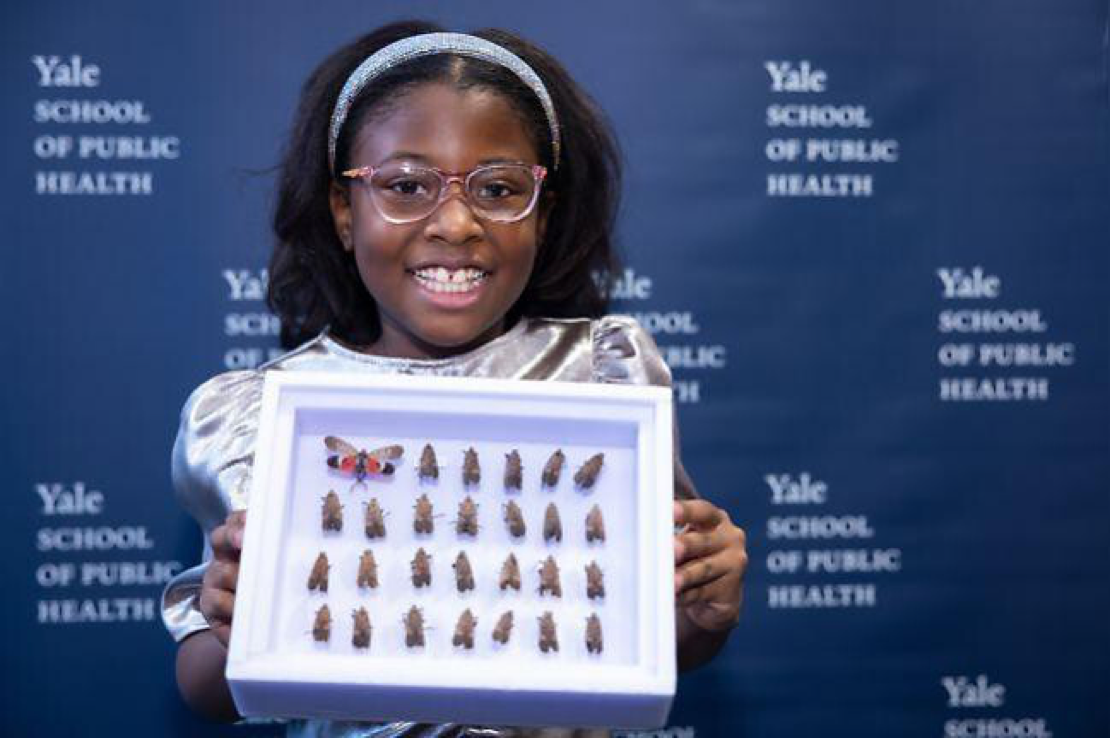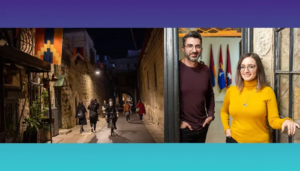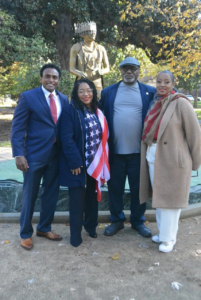Bobbi Wilson’s efforts to rid her town of the spotted lanternfly unwittingly touched off a national discussion about racial profiling
A nine-year-old girl who had a neighbor call the police on her as she worked to eradicate invasive insects from her home town has earned honors from one of the US’s most prestigious universities.
The Yale School of Public Health earlier this month held a ceremony citing Bobbi Wilson’s efforts to rid Caldwell, New Jersey, of the spotted lanternfly, according to university officials.
The 20 January gathering also recognized Bobbi for bestowing her personal collection of lanternflies to Yale’s Peabody Museum, which entered the collection into its database and listed the child as the donating scientist.
An assistant professor at the public health school, Ijeoma Opara, told those at the ceremony that she organized the event to bring attention to Bobbi’s “bravery and how inspiring she is”.
“Yale doesn’t normally do anything like this,” Opara said, according to the university. “This is something unique to Bobbi.”
Bobbi, who is Black, unwittingly touched off a national discussion about the sometimes mortal danger associated with racial profiling on 22 October, when a neighbor called the police on her as she used a homemade repellant spray of water, dish soap and apple cider vinegar to kill spotted lanternflies feeding on trees near her home.
Lanternflies are invasive pests which are native to Asia and harm trees in a variety of ways, including by sucking their sap and causing holes through which harmful substances can then enter them. Scientists – whose ranks Bobbi has long dreamed of joining – advise people to kill the insects to protect the environment.
Yet that day, police stopped and questioned the girl whose loved ones have nicknamed “Bobbi Wonder” after being summoned by a neighbor who considered the girl a suspicious person.
“There’s a little Black woman walking, spraying stuff on the sidewalks and trees,” the caller told police, CNN reported. “I don’t know what the hell she’s doing. Scares me, though.”
The caller later reportedly apologized to Bobbi’s mother, Monique Joseph. But, with research showing Black and Hispanic children are significantly more likely to be shot to death by police than their white counterparts are, Joseph said the neighbor’s call put her daughter in lethal peril.
In an interview with CNN, the executive director of the Georgetown Law Center on Poverty and Inequality, Rebecca Epstein, said that the episode starkly illustrated the bias that Black girls like Bobbi face in the US.
The center in 2017 released an analysis which showed grownups in general perceived Black girls as not as innocent and less deserving of protection than white girls, in a sense “adultifying” them and leaving them more vulnerable to harsh treatment from police.
After Opara saw national news coverage of the police being called on Bobbi, Yale officials said, she contacted Joseph and invited her to bring Bobbi as well as her older sister, 13-year-old Hayden, to meet Black women who were pursuing successful careers as scientists. Hayden’s appearance at a local government meeting about Bobbi’s police encounter was a large reason why the national media paid attention to the case.
Bobbi and her family accepted the invitation, and they toured Yale in November. When Bobbi returned with her mom, sister and dad, Dale Wilson, more recently, the Yale Peabody museum’s entomology collection manager, Lawrence Gall, thanked the nine-year-old for the 27-specimen collection of spotted lanternflies that she had amassed and donated.
“We’re so grateful for all of the work you’ve done … in New Jersey, and your interest in conservation and checking out the lanternflies’ advance,” Gall said. “They are just starting to come up here … So we’re very happy to have these specimens.”
Opara added: “We just want to make sure [Bobbi] continues to feel honored and loved by the Yale community.”
Bobbi, for her part, placed a label on the collection that identified it as hers and – for future researchers – reported where as well as when she had assembled it. The public can already view the collection in the museum’s database.
Meanwhile, Joseph thanked Yale for its support and pledged that her family would make sure “Bobbi lives up to her fullest potential”.
“This happened because of what happened to Bobbi, but it also happened because the whole community, the science community, got together and said, ‘She’s one of us and we’re not going to let her lose her steam,’” Joseph reportedly remarked. “I just appreciate it. It means the world.”




